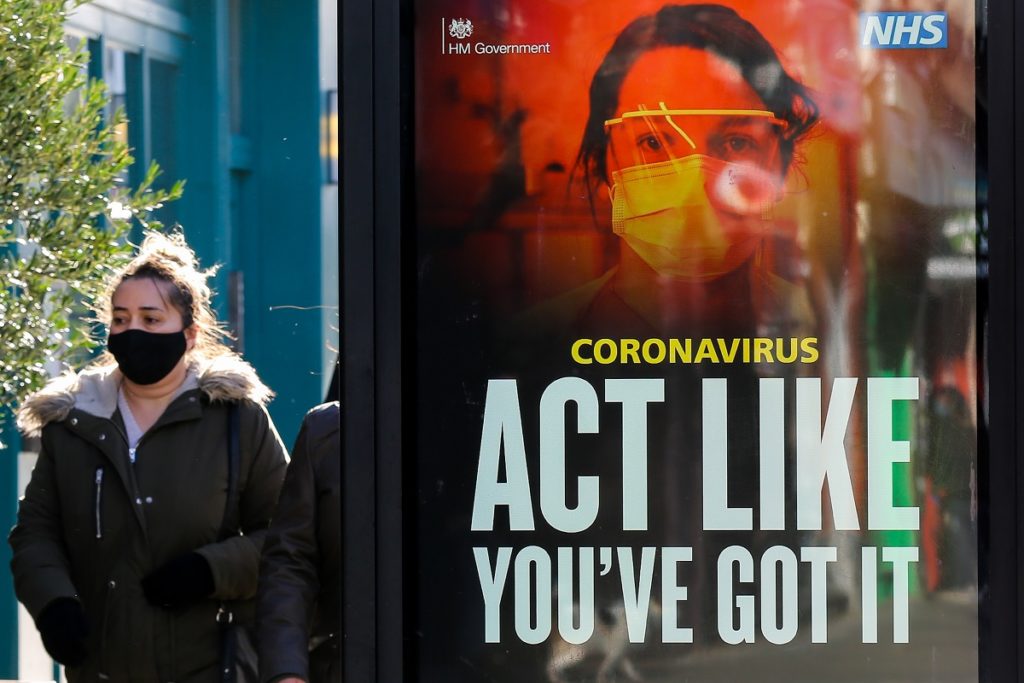Last week’s six-month extension to coronavirus legislation was predictable for two things: the paucity of Conservative MPs who voted against it, matched by the tiresomely predictable abnegation of Keir Starmer in his duty as leader of the opposition.
Parliament, a supposed debating theatre, has now become a vacuous echo chamber. Voters can only sit back in slack-jawed wonderment at the spectacle of MPs ostentatiously jostling to agree with each other.
Whilst businesses large and small across the country must have gulped at the unwelcome extension to already damaging legislation, there would have been one group cheering to the rafters. This happy breed comprises the advertising agencies and media owners who will once again be hosed down with millions of pounds of taxpayers’ money keeping the government’s rickety narrative on track.
Many subscribe to George Orwell’s withering aphorism that “advertising is the rattling of a stick inside a swill-bucket” but they would be wrong.


State advertising has long been a potent tool to disseminate policy. Overtly parti-pris campaigns are more associated with authoritarian regimes whilst, by contrast, generations of British people have been reared on a more bucolic and balanced diet of government messaging.
The Ministry of Information’s 1939 exhortation to “Keep calm and carry on” epitomised a stoic and collective approach to boosting public morale. It was neither hectoring or fear based; it appealed to the public’s common sense, resolve and intellect. In the 50s and 60s we were advised on cutting out smoking, eating healthier foods, washing hands and the obvious “don’t drink and drive”. Looking back at these initiatives, one cannot help but observe an altogether-different relationship between the state and its subjects.
Even the contentious 1971 change-over to decimalisation was accompanied by a humorous jingle sung by The Scaffold “use your old coppers in sixpenny lots”. To take the public along with them it was abundantly clear that “a light touch” was more rewarding than a serious and alarmist tone.
Yet the covid crisis has revealed a far more unpleasant and disturbing use of text and images. Long gone are the leitmotifs of humour and citizenship, replaced by sullen harassment alongside guilt-inducing accusatory words.
One of the most depressing aspects of the covid saga has been the overwhelming and inescapable orgy of “messaging” that the government has indulged in. Whilst lockdown has presented many challenges for the entire population, a recurrent theme has been the worrying toll exacted mentally for many people.
In 2020, the UK government tripled its already bloated advertising budget, displacing corporate behemoths such as Unilever, Sky and Proctor & Gamble, by splurging a whopping £164 million. If you then add Public Health England’s substantial 2020 ad spend of £80m, you get a good picture of how government messaging has come to comprehensively dominate our lives.
However, unlike traditional advertisers, the government’s covid onslaught has given its target audience no respite. Major advertisers know that while campaigns are effective for a short period, prolonged exposure is both costly and even counterproductive.
We have not had the luxury of commercial concerns effectively curtailing the ceaseless morale sapping covid messaging. It cannot be beyond the comprehension of government ministers and advisors that the public got the message months ago, we do not need a daily salvo of gloom-laden propaganda.
Perhaps the government’s largesse goes some way to explain the oddly uncritical media coverage given over to how the pandemic has been handled domestically. Why, after all, would a dog bite the hand that feeds it?
It is interesting to note though how the whole tone and substance of government messaging has changed since the start of the pandemic. We all understood “Protect yourself and others”; equally so “Hands Face Space”. More questionable and concerning were the preposterous “Act like you’ve got it”, suggesting that joggers and dog walkers were at the top of the vector-spreading tree. This was swiftly followed by the immoral “Look into their eyes” campaign, unsubtly ramming guilt down our collective gullets.
This remorseless activity has probably done more to damage the national mood than the virus itself – one might assume, uncharitably, that this was the over-riding purpose of these campaigns. Fear and destabilisation, as any student of psychology will attest, are twin ways to control people. The fear experienced results in the population turning to their leaders for safety and direction; the solution invariably presented is increasingly freedom-curtailing legislation for which the people are unwittingly grateful.
Sadly, what many currently perceive as benign governmental action, others spy, perhaps more pertinently, as nascent autocracy.












